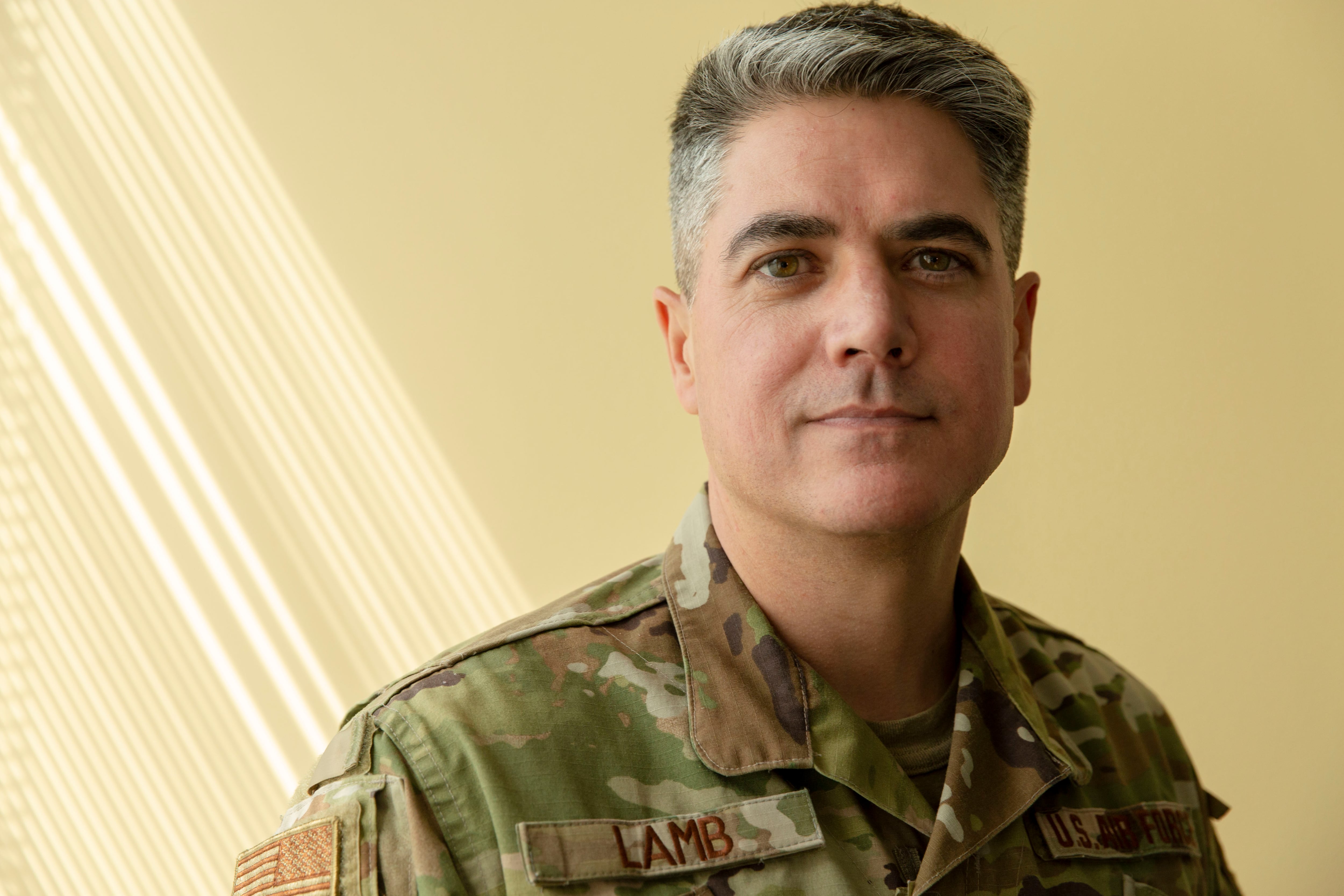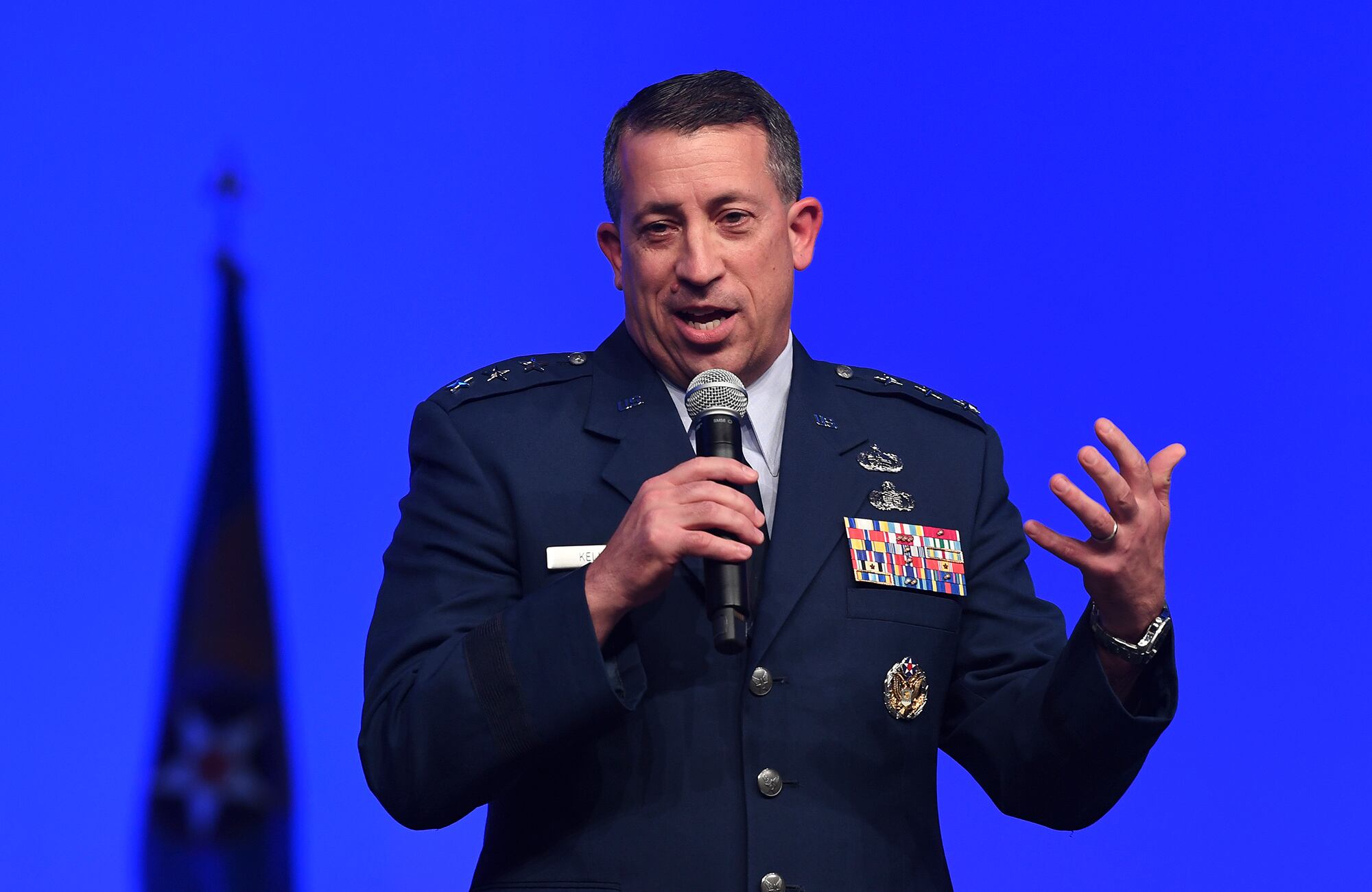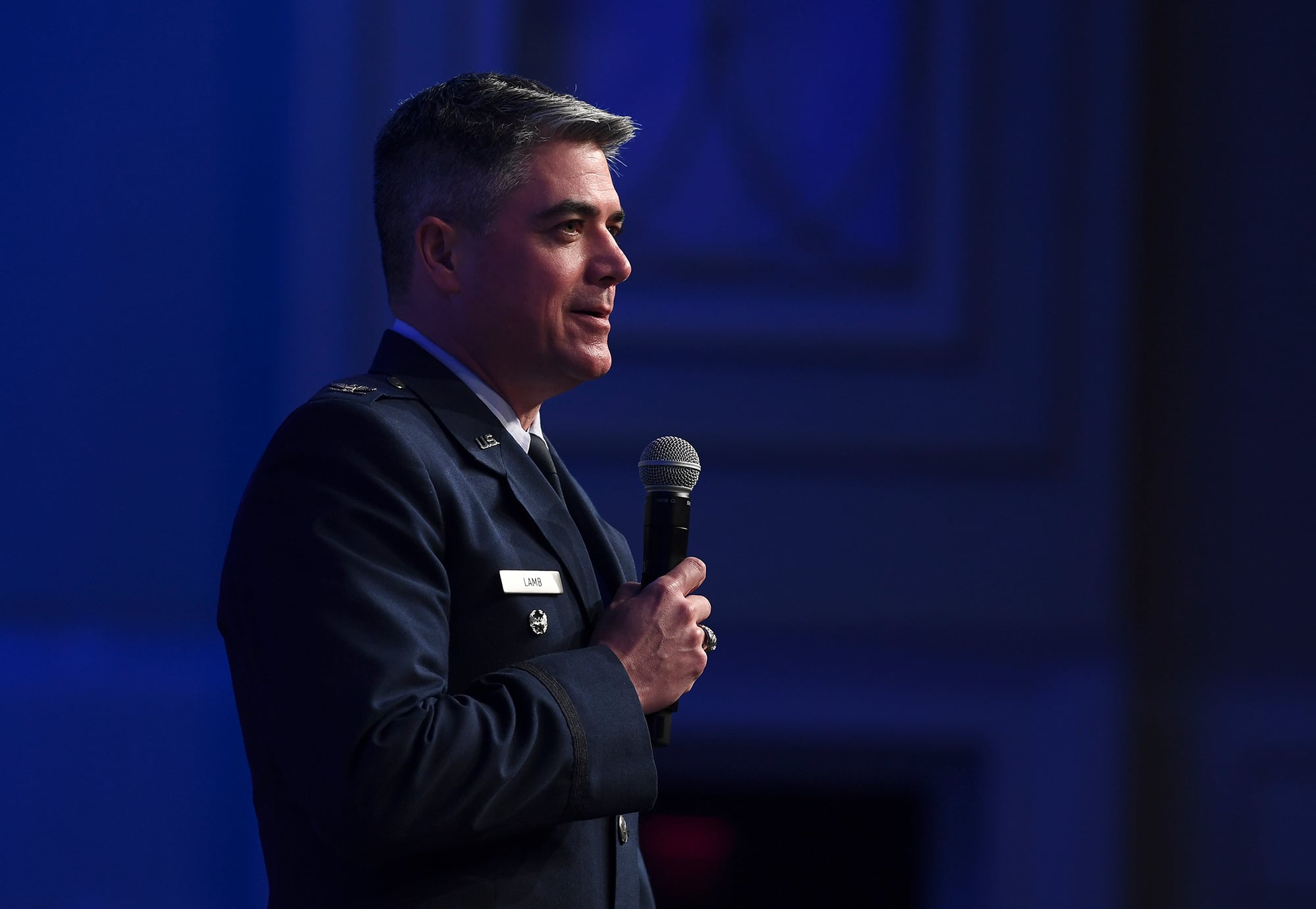The Air Force officer who stormed the internet under the pseudonym “Col. Ned Stark” closed out the Air Force Association’s annual conference Wednesday with a freewheeling discussion about the service’s culture — and how to fix it.
“I think many of your peers think you’ve lost your mind, putting me up here without any rules,” Col. Jason Lamb told Lt. Gen. Brian Kelly in a tongue-in-cheek fashion after taking the stage at the Air Space Cyber conference in National Harbor, Maryland. “And if you weren’t looking for candor, you picked the wrong guy.”
Kelly, the Air Force’s deputy chief of staff for manpower, personnel and services, said Lamb’s “voice is helpful in the larger conversation” on talent management in the Air Force. Lamb is a career intelligence officer and leader at Air Education and Training Command.
Over the next 45 minutes, Lamb and Kelly touched on everything from how officers are rated and promoted, to the way one mistake on something as small as a PT test can derail a good airman’s career, while other officers have wrongdoing swept under the rug and grow to become toxic leaders.
Above all, Lamb said, the Air Force lacks a system that truly allows it to differentiate between how well one officer performs against another.
First, Lamb said, the Air Force needs to move away from the concept of “sustained superior performance." Things that happened years in the past only matter if they relate to what an officer can do today, Lamb said.
The concept of “stratifications,” in which airmen are judged against their peers when promotion time comes, is “okay,” Lamb said — but can also unfairly derail the careers of officers or enlisted airmen who made, and then learned from, a mistake.
“One bad strat, one bad interaction, and suddenly you are not in consideration when you may have grown to a place where we need you to be,” Lamb said. “And the person who got that strat maybe decided to sit on their laurels. And maybe that isn’t the person that we need for tomorrow, caring for our airmen.”
RELATED

Those career-derailing mistakes can sometimes even come from things as small as a PT test failure, he said.
“I don’t know how many times I’ve had a really sharp master sergeant that was ready for the next stripe,” Lamb said. “But the counsel I got was, ‘You’re wasting your stratification on this individual.’ Because two years ago they screwed up and failed a fitness assessment. ... Why are we putting someone in a multi-year penalty box for” mistakes they learned from?

The Air Force has gone overboard with its “one million-and-one” awards it hands out to try to identify the best performers, Lamb said. Instead, he said, the service needs a system that uses “actual, objective, verifiable data” to measure performance and hold officers accountable.
“I was one of those” who received such awards, Lamb said. “But it’s gotten to the point now where we have the red-headed, left-handed maintainer of the year award, just because we’re looking for ways to try and tell the people that we should promote from the people that maybe aren’t quite ready.”
While the system tries to hold bad actors accountable, Lamb said, it sometimes backfires by discouraging supervisors from recording serious misdeeds. Because one black mark on someone’s record can derail an officer’s career, he said, many times supervisors won’t record genuine wrongdoing.
“I don’t know how many times I have heard people say, ‘Well, you shouldn’t hire that person, because X happened,’” Lamb said. “It is nowhere in their records because somebody was afraid to slow somebody down. So we need a system that incentivizes candor, because that one mistake isn’t going to necessarily define them the rest of their career, especially if they learn from it, and they’re in a better place today.”
In addition, senior leaders need to be held accountable for who they elevate or hire into leadership positions, Lamb said.
“When we hire someone and they get fired for integrity issues, lack of judgment, creating a toxic or hostile work environment, I promise you, it wasn’t the first time that they’d engaged in those behaviors,” Lamb said. “And there was a long line of more senior officers who pushed that individual along. There’s no accountability. … And until there’s an accountability mechanism, and a way to follow up and have actual meaningful consequences, the system isn’t going to change.”
Kelly said Lamb “articulated things a lot of us have seen” in how the Air Force manages people. The Air Force needs to have “confidence in character” as it manages talent, he said.
Kelly agreed that “proxy indicators," such as awards or being named a distinguished graduate at education programs such as Squadron Officer School, have become more prominently used by raters as the Air Force has struggled to find better ways to accurately measure performance.
“When [performance] reports look similar, if you are looking for an ‘easy button,’ you start to find other … ways to tell the difference between one officer or another,” Kelly said. “And so you revert to things like [awards and distinguished graduate status]. And those aren’t always the very best means to determine performance."
Lamb laughed and noted that he’s been a distinguished graduate, and a top graduate, but “it doesn’t matter.” If he had his way, he’d scrap the distinguished graduate concept “tomorrow,” because as long as they’re around, they’ll be used as quick and easy ways to decide which officers are best.
The Air Force also needs to take a hard look at what it values in education, he said, and whether more schooling is actually helping improve officers. Lamb said he spent years pursuing more degrees, for not much benefit, that he otherwise could have spent leading airmen and contributing to the mission.
“I don’t care what you know, unless you actually use it to do something,” Lamb said. “I have four master’s degrees. Why? Three of them are in the same subject. So, no wonder I was the top grad the last time around. It only took me three tries to figure it out.”
The Air Force is now considering a seven-point scale to measure officers’ competencies in areas such as executing their mission or leading people, Kelly said. The Air Force could also take into account whether a particular rater tends to be an easy or hard grader.
“Are they Santa Claus, or are they the Grinch?” he said.
When asked how the Air Force could help reward late bloomers and slow down officers who are deemed “high-potential” yet fail to perform as they get older, Lamb said the Air Force should scrap the year-group system used for promotions.
“You’re either ready to be considered for promotion, or you’re not,” Lamb said. “In-the-zone, above-the-zone, below-the-zone, it’s all driving unhealthy behaviors.”
Stephen Losey is the air warfare reporter for Defense News. He previously covered leadership and personnel issues at Air Force Times, and the Pentagon, special operations and air warfare at Military.com. He has traveled to the Middle East to cover U.S. Air Force operations.




